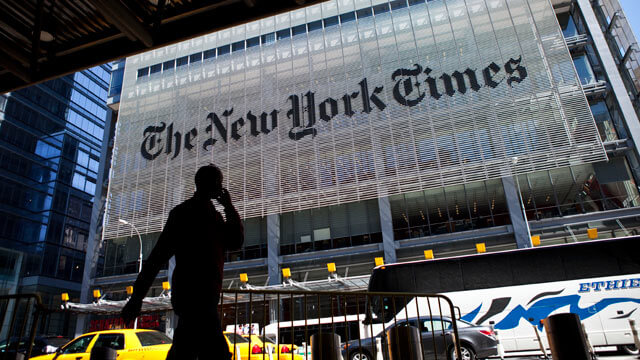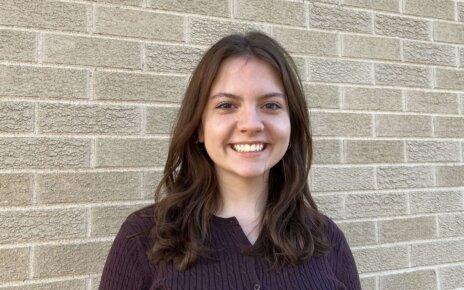Monmouth University granted students free access to The New York Times on Tuesday, Jan. 17, adding to the school’s expansive collection of over 230 databases and other informational resources including The Chronicle of Higher Education, The Washington Post, and The Wall Street Journal.
Kurt Wagner, University Librarian, explained that Monmouth already had partial access to The New York Times through another subscription: “It wasn’t the full experience of having this kind of premium access. When you subscribe to them directly, you get access to special articles and other content. For a long time I had been wanting this better version with full access to The New York Times, but there’s always the question of money.”
Last year, the Leon Hess Business School, the Monmouth University Library, and The Wall Street Journal partnered to provide school-sponsored WSJ memberships to all Monmouth University students, faculty, and staff.
“The Leon Hess Business School faculty is committed to a curriculum that prepares our students for leadership roles in business. Access to the WSJ as a supplement to the classroom curriculum allows students to apply their learning through a review of business news, critically think about how their education relates to the real world of business, and build awareness of current business news,” said Raj Devasagayam, Ph.D., Dean, Professor of Marketing and International Business and Dean of the Leon Hess Business School.
“That made me want the same access to The New York Times,” said Wagner. “I had been having conversations with sales representatives, but it never seemed to be the right time.”
Upon closer inspection of the cost of the different subscriptions to The New York Times, Wagner discovered that the prices for limited and full access were relatively similar. “I was thinking I could cancel the partial one and subscribe to the premium one, but it didn’t work quite that way because they wouldn’t let me cancel and give me a refund or anything,” said Wagner.
After some negotiation, Wagner secured a partial year subscription lasting from the end of January through June. “I was able to find the funds to pay for that through the library’s donor fund for library materials. I figured, what better way to spend this money than to give the entire University access to this really tremendous tool?”
Wagner noted that when both subscriptions expire in June, he plans to cancel the limited-access plan and renew the premium subscription at an equal price point.
“Having greater access to resources like The New York Times and The Wall Street Journal really provides this balanced package of trustworthy information,” explained Wagner. “Having both shows that we’re not trying to favor one point of view or one perspective.”
“I think it’s great that Monmouth is offering both The New York Times and The Wall Street Journal, which are both relatively accurate in terms of facts,” said Catherine Duckett, Ph.D., Associate Dean of the School of Science. Citing the Ad Fontes Media Bias Chart, a resource that rates various news outlets based on reliability and bias, Duckett noted that The New York Times leans left politically while The Wall Street Journal leans right. However, both outlets are ranked as reliable in their fact reporting and analysis.
“[The Media Bias Chart] affected my own reading of media, and I’m now more likely to go to Reuters or AP or something like that for news,” said Heide Estes, Ph.D., Professor of English.
“With social media and the way the algorithms work, many people are effectively in information bubbles where they only get information that reinforces the ideas prevalent in their social circle,” continued Duckett, noting the importance of access to accurate information through credible sources.
“I find out a lot of things through social media, I just don’t believe stuff right away. If I see something that seems slightly implausible in some way, I’ll go and double check if other outlets are reporting on it. If they aren’t, I’m going to assume it’s because they haven’t found good information about it that they trust,” explained Estes, who noted that reading articles in their entirety and cross checking facts are important habits to adopt when consuming information found online.
“While social media has real time and reliable reporters, finding these accounts takes a high level of media literacy and a strong understanding when it comes to discerning misinformation and propaganda,” said Richard Pitts, a junior political science student. “Newspapers like these are not prone to misinformation or propaganda, and offering these subscriptions keeps the student body informed with a diverse set of viewpoints.”
“I use free resources from the University often. The databases are good for when I need to write papers or search a topic with reliable sources. It’s great to be given such a valuable tool for free. Everyone should take advantage of it,” said Breanna Guinta, a sophomore creative writing student.




